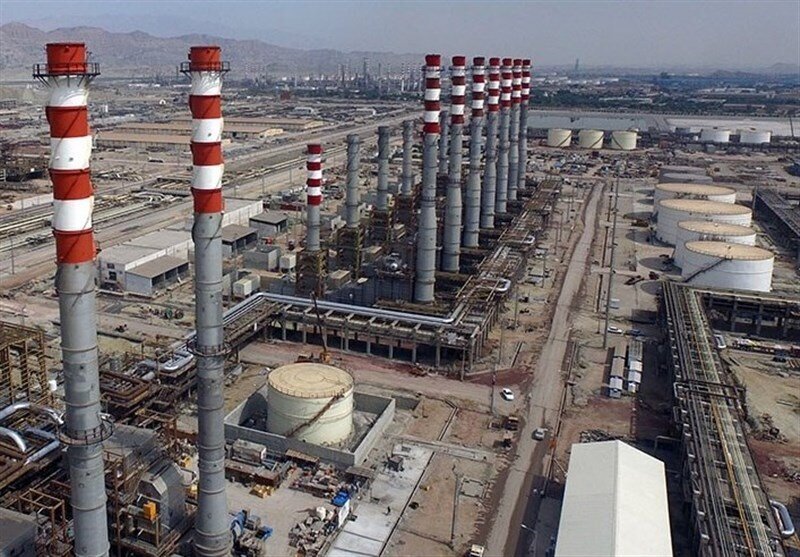Iran’s refining capacity reaches 2.3m bpd

TEHRAN - Daily processing capacity of Iranian refineries has reached 2.3 million barrels, according to Alireza Sadeq-Abadi, the managing director of National Iranian Oil Refining and Distribution Company (NIORDC).
The country’s refineries process 1.8 million barrels per day (bpd) of crude oil and 500,000 barrels of gas condensate per day, IRIB quoted the official as saying on Saturday.
“There are currently 10 refineries operating in the country, nine of which are processing crude oil and one is especially designed for refining gas condensate,” Sadeq-Abadi said.
The official noted that so far the country’s refineries have been mostly focused on supplying fuel need including gasoline, gasoil and etc., however future planning would be more focused on developing petro-refineries.
He added that there is the capacity to set up a petrochemical complex along with each refinery in the country so that instead of producing more fuels feedstock for the petrochemical complexes will be produced to create other products like plastic and detergents.
Back in June, Sadeq-Abadi put the country’s refining capacity at 2.15 million bpd, saying “The country’s total refining capacity which was 1.55 million bpd at the beginning of the Iranian calendar year of 1396 (March 21, 2017), currently stands at 2.15 million bpd.”
“The upward trend will continue in the current year and we expect the [refining] capacity to reach 2.4 million bps by the end of the year,” he said.
He further noted that 850,000 barrels of crude oil and gas condensate, which were prevented from entering the global market by the unjust U.S. sanctions, are currently being refined inside the country into products with higher value added.
According to the official, most of the increase in the capacity is expected to come from the fourth phase of Iran’s Persian Gulf Star Refinery (PGSR) which is located in the southern province of Hormozgan.
In early June, Iranian parliament passed a bill for increasing the capacity of the country’s oil and gas condensate refineries.
The approval of the bill came after earlier that month the Research Center of Iran’s parliament announced that petro-refineries were two times more profitable than refineries and suggested that National Iranian Oil Company (NIOC)’s new refinery projects be defined as petro-refineries.
Since the U.S.’s withdrew from Iran’s nuclear pact in May 2018, vowing to drive Iran's oil exports down to zero, the Islamic Republic has been taking various measures to counter the U.S. actions and alleviate the impacts of the unjust sanctions on its economy and increasing the country’s refining capacity has become a major goal for NIOC.
EF/MA
Leave a Comment